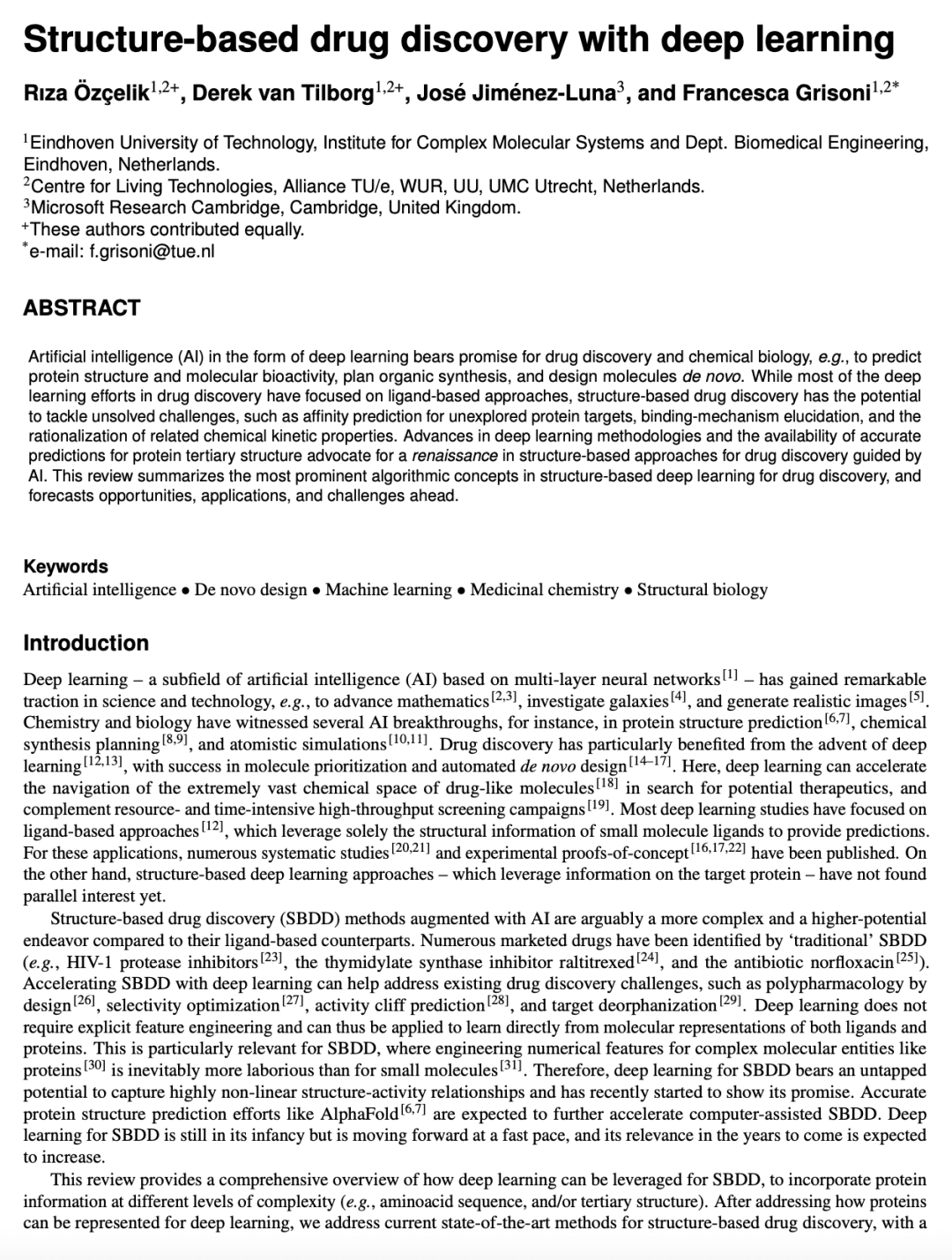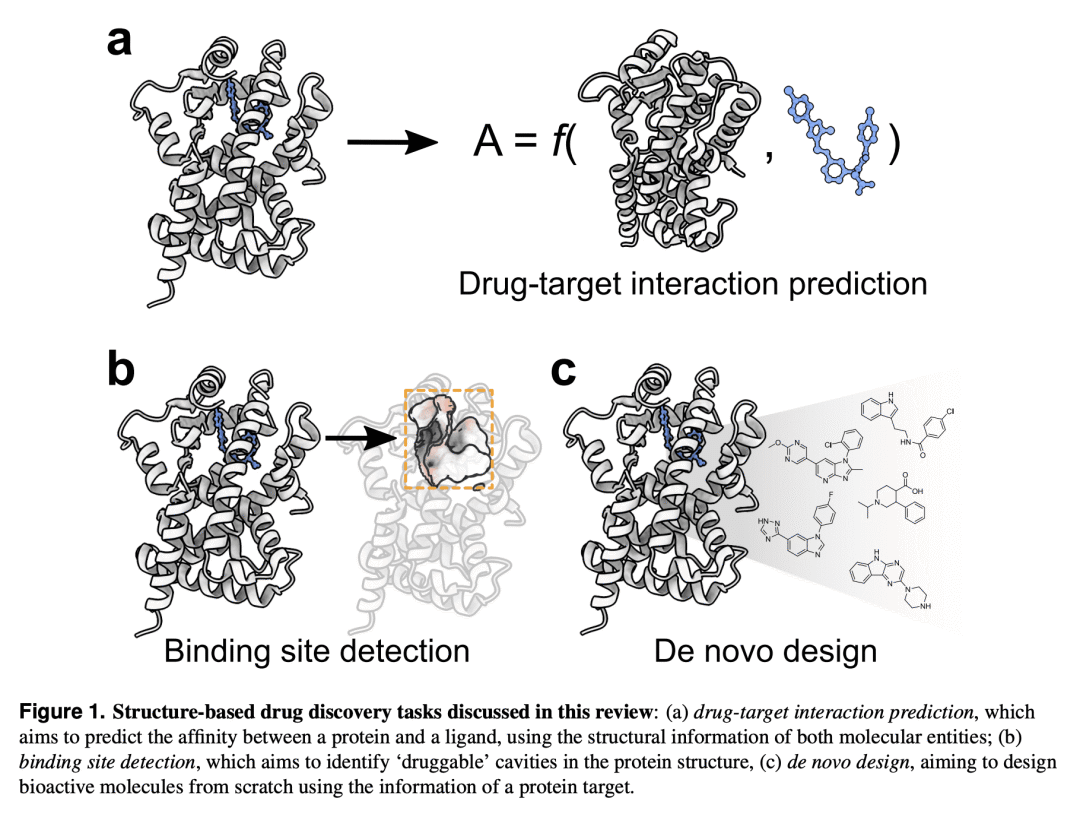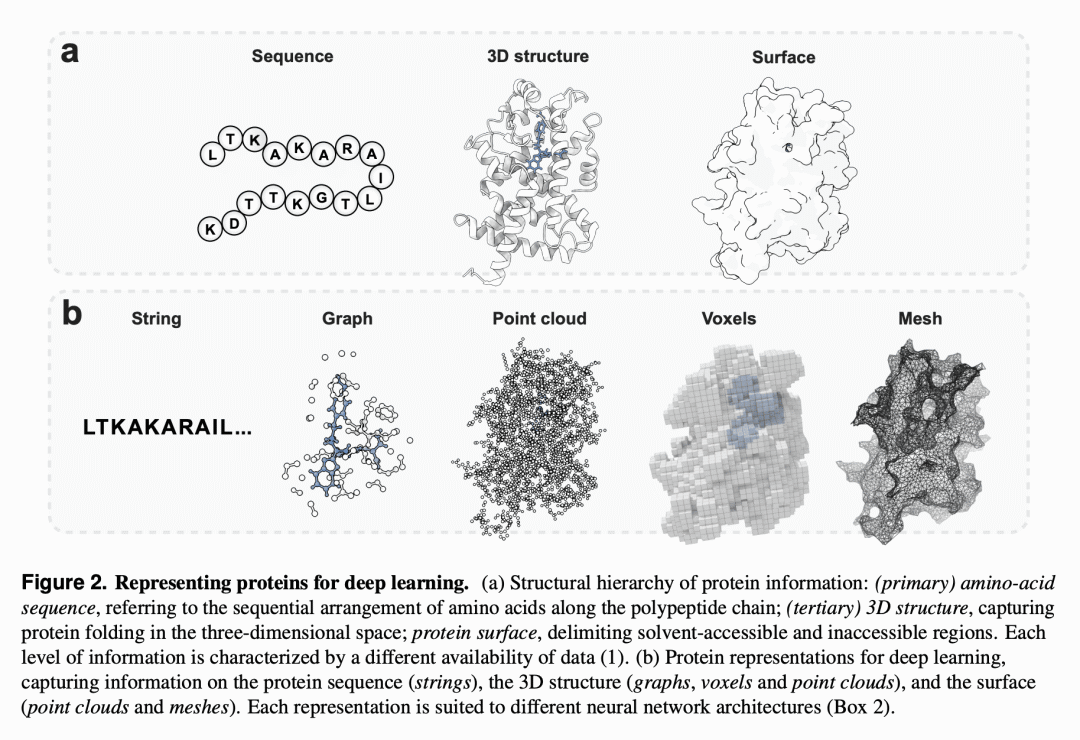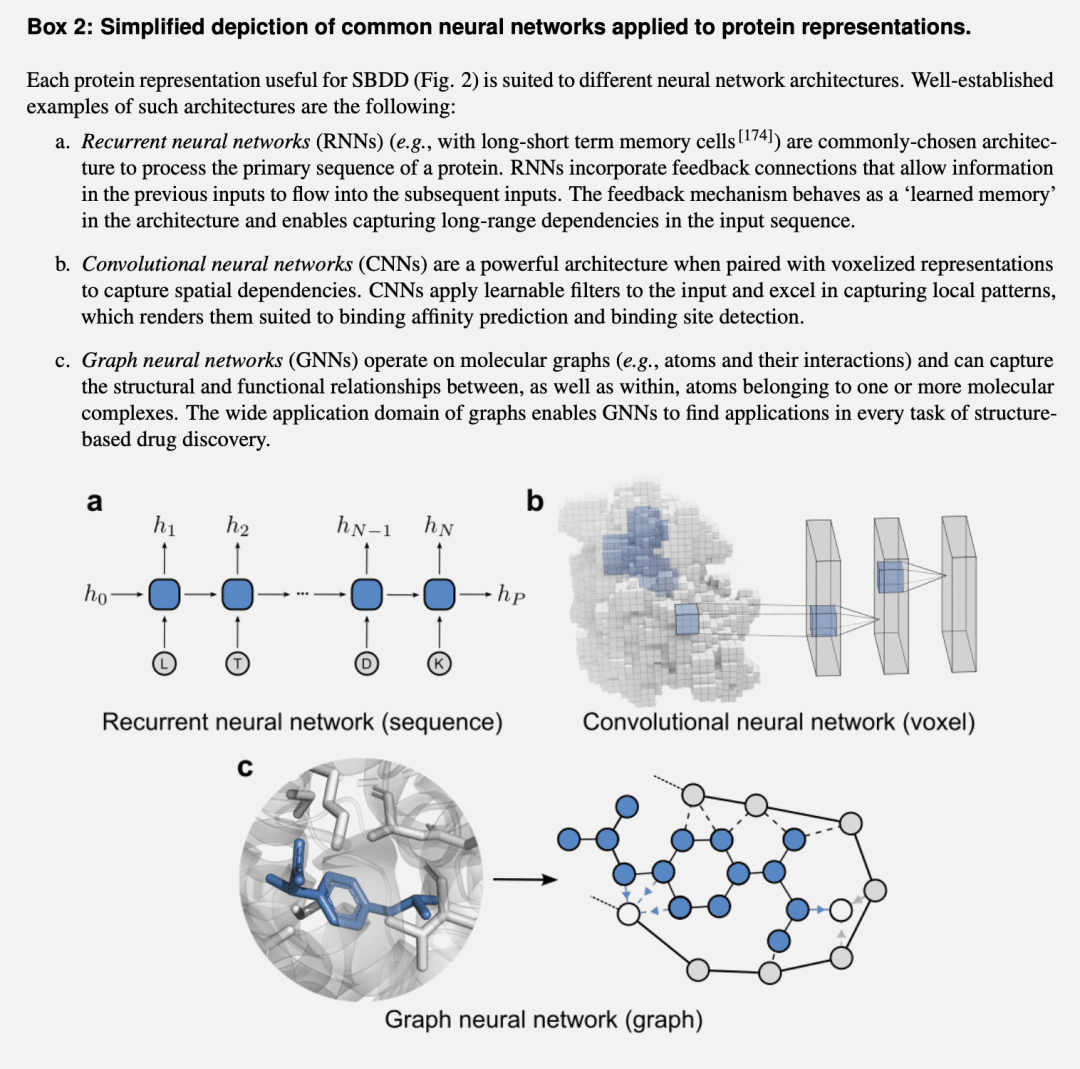来自今日的爱可可前沿推介
[LG] Structure-based drug discovery with deep learning
R Özçelik, D v Tilborg, J Jiménez-Luna, F Grisoni
[Eindhoven University of Technology & Microsoft Research Cambridge]
基于结构的药物发现与深度学习
要点:
-
深度学习可用于蛋白质结构和分子生物活性预测,有机合成规划,以及新分子设计; -
深度学习方法的进步和蛋白质三级结构的准确预测,为AI引领的基于结构的药物发现提供了新的复兴机会; -
深度学习为更有效地探索化学空间提供了新的机会,如配体结合位点检测,药物靶点相互作用预测和基于结构的从头设计。
摘要:
以深度学习为主要形式的人工智能(AI)为药物发现和化学生物学带来了希望,例如预测蛋白质结构和分子生物活性,规划有机合成,以及设计新分子。虽然药物发现中的大多数深度学习工作都集中在基于配体的方法上,但基于结构的药物发现有可能应对未解决的挑战,例如未探索蛋白质靶点的亲和力预测、结合机制阐明以及相关化学动力学特性的合理化。深度学习方法的进步和蛋白质三级结构准确预测的可用性倡导在人工智能指导下基于结构的药物发现方法的复兴。本综述总结了基于结构的药物发现深度学习中最突出的算法概念,并预测了未来的机会、应用和挑战。
https://arxiv.org/abs/2212.13295
Artificial intelligence (AI) in the form of deep learning bears promise for drug discovery and chemical biology, e.g., to predict protein structure and molecular bioactivity, plan organic synthesis, and design molecules de novo. While most of the deep learning efforts in drug discovery have focused on ligand-based approaches, structure-based drug discovery has the potential to tackle unsolved challenges, such as affinity prediction for unexplored protein targets, binding-mechanism elucidation, and the rationalization of related chemical kinetic properties. Advances in deep learning methodologies and the availability of accurate predictions for protein tertiary structure advocate for a renaissance in structure-based approaches for drug discovery guided by AI. This review summarizes the most prominent algorithmic concepts in structure-based deep learning for drug discovery, and forecasts opportunities, applications, and challenges ahead.




内容中包含的图片若涉及版权问题,请及时与我们联系删除



评论
沙发等你来抢